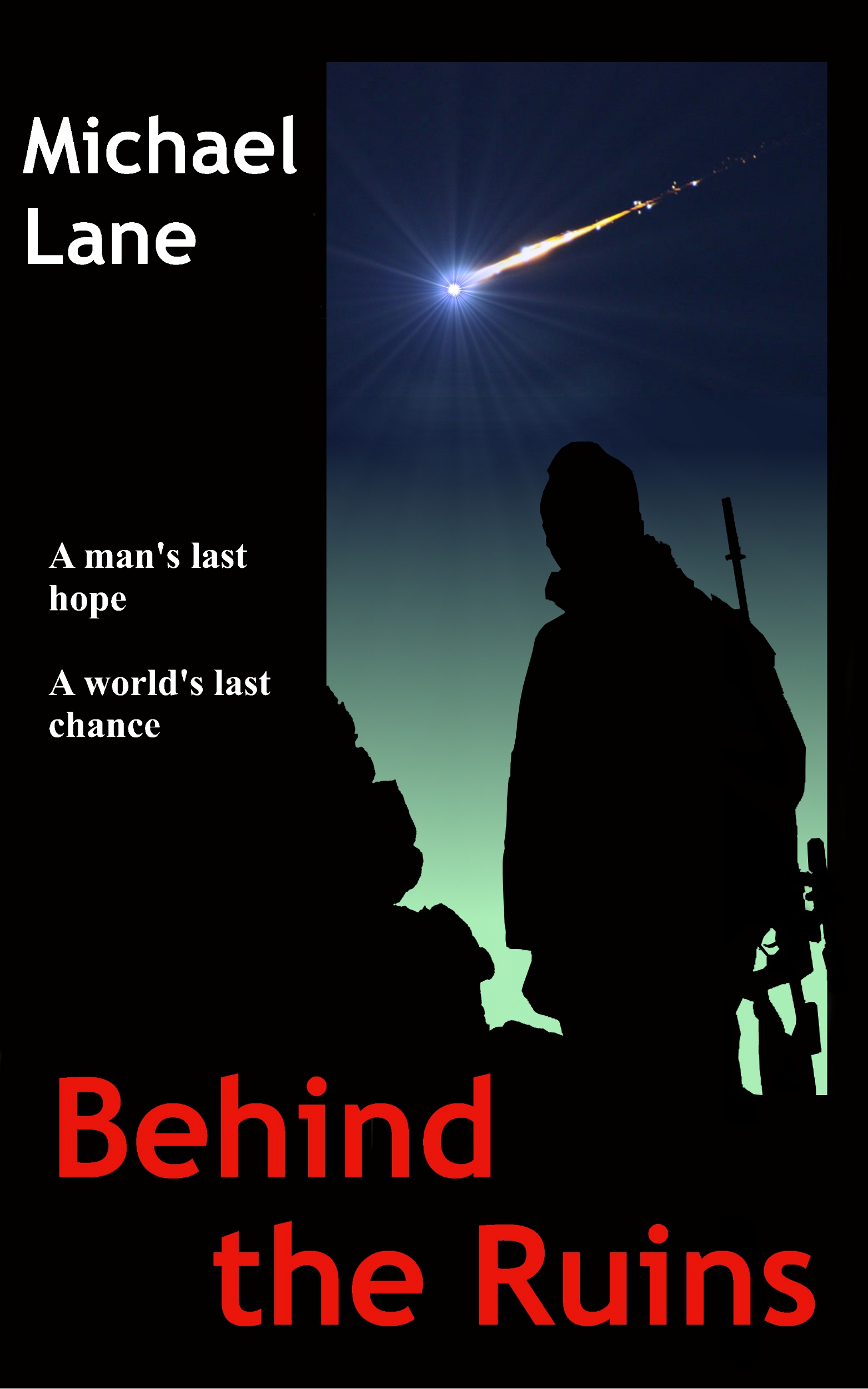It was easy to tell the first wavers from the second wavers; as the shuttle approached the surface of the planet, the second wavers were all standing at the panoramic forward windows of the upper deck, while the first wavers, like Victor Warbur, remained in their seats.
Warbur had seen Vonbek many times before, and was more interested in watching the passengers. Taylan was the focus of his attention at this moment, and when he glanced around at his fellow passengers he could see that she was the focus of theirs too. It was perfectly understandable.
Firstly, she was young. About twenty-eight years of age and full of health and energy. Secondly she was enthusiastic, a trait that many of the first wavers had long since lost in the decade that they’d all been here, and thirdly she was single.
There was very little chance that she’d be interested in the slightest in any of the boring old men who’d found themselves assigned to this particular excursion down to the planet, but that didn’t seem to bother them Warbur observed. It was more of a case of fixating their playful fantasies on someone who was completely unavailable and yet real, rather than whatever dream woman they had created for themselves over the years to maintain their sanity out here.
Most of them had families of course, but they were either back home in the Earth system, or were living here and so were part of the everyday mundanity that had become the dull background to their existence.
Taylan’s attention was not on them. She was standing next to the man who was only a little older than her, but who was already in one of the most senior positions within the Corporation.
Between the three of them, Warbur, Taylan and ‘corporation boy’, they represented the three main factions of the Earth Expiditionary Force, which was the whole point of having them attend the presentation on the planet. It was yet another official engagement that some senior executives at the top of the chain of command had decided would make good press for the propoganda machine which even now, almost ten years after they’d arrived at Vonbek, was still trying to persuade the alien population that this was a great, bold new era for them.
Since the ‘couple’ had arrived on the shuttle, at the station in orbit, the girl and the corporation representitive had been inseparable. They hadn’t said more than three words to anyone else, yet had talked constantly to each other all the way down. Corporation boy was quite knowledgeable about every aspect of the alien economy, politics and social make-up as any high-climber in the corp would have to be, but Warbur knew he’d studied it all from books and reports. There was a huge difference between knowing something and experiencing it, as Warbur had. Many of the early reports had been proved wrong and assumptions made about the alien society and the way it functioned had been shown to be far too simplistic.
There were many facets to the society they had encountered. contact with one group or local authority did not guarantee that another would want to have anything to do with them. There was no central leadership as such, everything was local. That was what was so brilliant about the ‘children’. It had been a very useful ploy, to get at least one small group of aliens on their side, though at the time it had been nothing more than a solution to the language barrier. As Warbur listened, he heard the corporation’s representative recite the standard version of the events to his companion.
“You see, they had this problem with communicating with the Aliens when they first arrived,” he began. “It seemed like an intractable problem. How do you understand a language that you have no basic understanding of? It’s totally alien, in an alien culture where you can’t even figure out context. What you do is you find a bunch of children and you teach them English.”
“Why English?” Said Taylan, showing her true colours as the ‘independant observer’.
“It had to be something, I guess they could have picked Spanish or Chinese. In a way, it didn’t matter. Once we’d taught them one Earth language, we could translate it into any other. English is universal enough that most of the who countries who contributed to the Expedition would agree to it being the lingua-franca.”
Taylan extended her left arm and tapped something out on her wrist, notes to be reviewed later. Then she looked back out at the approaching planet. It was close enough now that Warbur could see the greenish tint of the sky starting to illuminate the upper part of the troposphere.
“So they picked a group of children on the planet and taught them English,” prompted Taylan, who knew the story anyway.
“Yes, but they didn’t bargain on how successful they would be. I mean, all they did was leave a few tablet computers lying around in a village where they knew they’d be found and load them up with language apps. You know what happens when you give technology to children. The adults largely ignored it, I mean they knew where it had come from, but the children, oh they figured it out.”
At this point in the story, Warbur decided to make his introduction. He could not bear to hear this story, his story, being told by someone else.
“After one week they’d mastered the alphabet,” he said from his seat, “after two they could match words with images. After three weeks they knew most of the rules of pronunciation, syntax and grammar. By the end of the first month, they could read, write and speak fluent English.” Warbur stood up and walked to the window, next to Taylan and the Corporation Representitive.
“And after two months they had hacked into the Earth Government communications network,” Corporation Boy said, no doubt trying to embarrass Warbur. It had the opposite effect.
“The alien children who were selected were nothing special, but there are gifted children in every group. Once we began to educate them, we discovered that their minds were easily as advanced as our own.
“But you can’t educate someone to a higher level than yourself,” said Taylan, “they might be even smarter than us given the proper training.”
“Ah well, that would be the Corporation’s department,” said Warbur, “I believe their AI programme is going to do all this and more.” He said this knowing full well that the Corporation’s AI programme had been five years away from fruition for the last twenty years, and was an intense source of embarrassment to them.
It suddenly occurred to Taylan to introduce her friend to the Government Offial and she turned to Warbur and said, “this is John LeVant of Corporation Operations,” they shook hands.
“Victor Warbur of the Earth Government,” said Warbur, keeping things deliberately vague. “And you must be ELIJA,” Warbur chuckled at the girl, noting the insignia on her suit.
“Yes, Selina Taylan of Earth League Interplanetary Joint Alliance,” she shook Warbur’s hand. “So, you’ve actually met these children?” She asked. Warbur smiled, wryly.
“I helped to create them. I set up the project after initial contact with the aliens, that was over ten years ago. They’re all grown up now. The boy your friend mentioned, the one who hacked into the comms network, he’s the one we’re going to meet.”
–
The shuttle set down on an open grassy plain about a kilometre from the town of Tok-Cenb. There were fewer people than Warbur had anticipated, but then aside from its importance to the Expeditionary Fleet, Tok-cenb wasn’t that remarkable. In reality it was little more than a mining village, with one ‘mayor’, one ‘elder’ and a few ‘councillors’. These titles were approximations of course, but the translation between English and the native tongue had always been tricky.
The Children had made this small town famous around the entire planet, but this didn’t seem to have had much of an economic impact on it, in the ten years Warbur had been coming here, he’d observed very few changes aside from the rapid maturation of its citizens. Vonbekians aged about at about twice the rate of humans and seldom lived beyond the age of thirty-five solar years. Still, it was disappointing to see such a poor turn-out, especially with the visitors here.
They all waited for the ramp to descend at the back of the shuttle and walked down into the damp, barely breathable air. There was no fanfare and no applause, since both of these practises would have been totally unknown to the locals, but one alien did approach them and extend an appendage in a very human-like way. This was the ‘boy’. Now a full grown adult and a long time acquaintance of Warbur’s.
“Mr. LeVant, Miss Taylan, this is Dita.”
“Mr. LeVant, Miss Taylan, this is Dita.”
Warbur knew the Second wavers would have studied the aliens during their trip, but now as he watched for their reaction, he knew they were realising the great gap between the idea of a thing and the reality of having it stand in front of you. The aliens were squat creatures, about four feet high, and were an odd shape. Three legged, three-eyed, three armed and arranged somewhat like a three-pointed star when seen from above. The arrangement extended right down to their toes and fingers, three on each arm and leg.
Both LeVant and Taylan were not merely speechless, but breathless, hyperventilating. Warbur waved a hand and a crewman from the shuttle rushed forward with a portable oxygen container.
“You’ll have to excuse my friends, they’ve never met an extra-terrestrial before,” said Warbur.
“It’s ok, I remember the first time I met a human. It was stressful for me too,” said Dita, in perfect English.
“You’ll have to excuse my friends, they’ve never met an extra-terrestrial before,” said Warbur.
“It’s ok, I remember the first time I met a human. It was stressful for me too,” said Dita, in perfect English.
They followed the alien, LeVant and Taylan gripping on to their masks as they walked, to the stand. It was nothing grand, but a simple stage built onto rocks and packed down straw. There was seating for the humans along the front, while the Vonbekians required only a clear space to rest, folding their rear two legs together to form a kind of seat.
Warbur had studied the schedule for the day’s presentation and knew that, like most Vonbekian events, it would take up many hours and be intersected by multiple stops for refreshments and informal chats. They never did anything in a hurry.
LeVant offered the seat next to Warbur up to miss Taylan, then took the seat on the end. Some of the other officals who had come down on the shuttle with them took up the seats in front and behind them and Dita sat at the back of the group.
The Mayor took to the stage and began speaking in the local dialect, which was immediately translated into whichever language was necessary by the computers in each human’s headpiece. The speech was standard, non-threatening and bland. Designed, it seemed, to offend no one and to welcome the new visitors to their humble planet. The effect of hearing second hand and spoken in the same flat automated voice that they listened to all day every day did little to counteract the soporific effect this had on each individual. This and the stifling air they were breathing between puffs on the oxygen cylinders had most of the human audience teetering on the verge of sleep within a minute of the Mayor’s address.
They were all suddenly brought out of it by a large explosion, which eminated from just behind the stage and expanded out into the audience. It took out the stage so completely that those who had been standing on or near it were instantly vapourised. The front four rows of people were killed either by the blast or the lethal shards of rock which were thrown outwards. Anyone behind that was in with a chance of surviving, though random luck seemed to determine the severity of the injuries suffered.
Warbur been forced back on top of Taylan, but LeVant who had been on the end had been hit. He was still alive, but barely. One by one each survivor rose from the ground to see which of those around them had not made it. Dita came forward from the rear and went straight for Warbur, picking him up and shaking him to his senses. Warbur could see Dita talking at him but could hear no sound at all, his ears were filled only with a single tone, like the feedback from a faulty microphone. Taylan stood and then saw LeVant and rushed to his side.
The Vonbekian response was slow and disorganised. The crew and security from the shuttle were on the scene long before any of the local emergency services had arrived. The injured humans, including LeVant, were bundled onto the shuttle and flown back up to the fleet’s medical ship. Taylan went with them, though she was able to walk to the shuttle herself. Warbur elected to stay behind and assist the security services in making sure any vital evidence was not lost and the scene was left as undisturbed as possible.
“What happened?” Dita asked Warbur, once the worst of the ghastly situation seemed over. Warbur had to consider his response.
“It was an attack I believe,” he said.
“An attack?” Dita repeated. “I don’t understand, what kind of attack.” Warbur didn’t quite understand it himself, but could think of no other explanation.
“Nothing like this has ever happened on your planet before?” He asked. Dita shook his head.
“There have been wars, fights in the past, but this, I don’t see how it fits with what you are saying. Where are the attackers?” He looked about him, seemingly puzzled by the concept.
“It’s called terrorism. It’s something we used to be very good at on Earth in one period of our history. And it looks like now we’ve brought it to with us to your world.”
-2,357
























